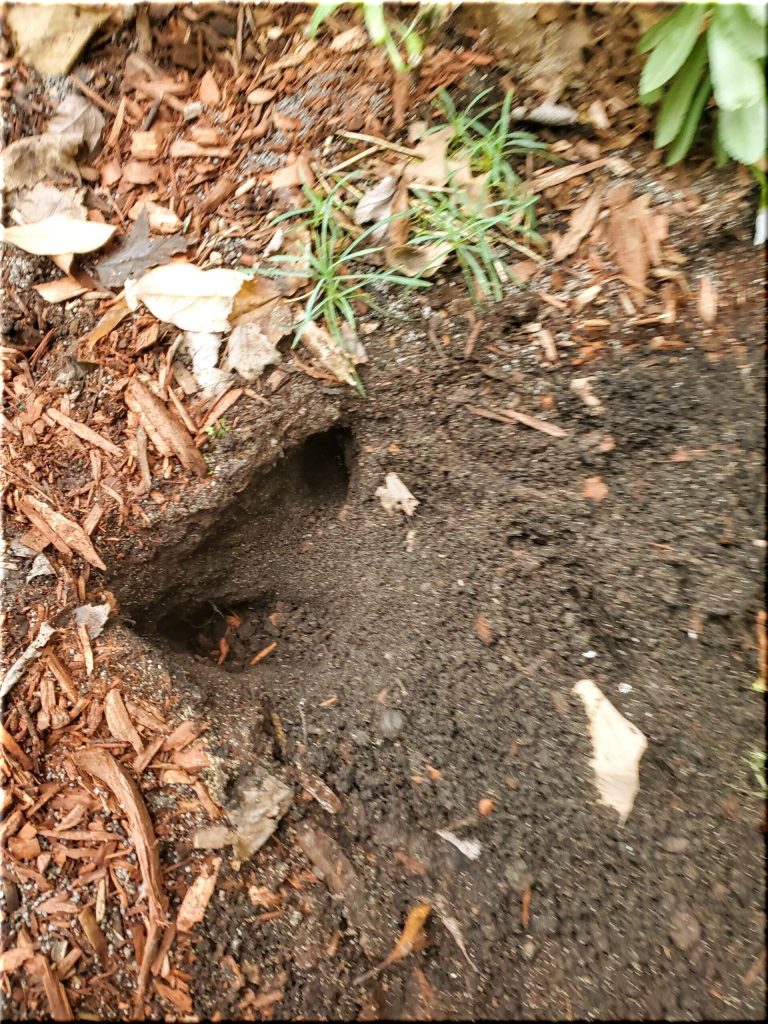Garden
How to Get Rid of Chipmunks in Your Garden: Understanding Behavior and Effective Solutions
Chipmunks, with their adorable cheeks and playful antics, can be a charming sight in the wild. But when they invade your garden, their charming demeanor quickly transforms into a nuisance. These furry creatures, notorious for their digging and snacking habits, can wreak havoc on your carefully cultivated plants and flowers. This article, designed by Goodxtop to guide you through the process of chipmunk removal, will help you understand their behavior and offer effective solutions to protect your garden.
Understanding Chipmunk Behavior and Damage
Chipmunks are small rodents that belong to the squirrel family. They typically inhabit forests, woodlands, and even suburban areas where they can find food and shelter. With their distinctive striped coats and bushy tails, they are easily recognizable, but their presence in your garden can be less appealing.
Chipmunks are naturally curious and active creatures. They spend their days foraging for food, burying nuts and seeds for future use, and digging intricate burrows that can extend up to 30 feet long. While these behaviors might seem harmless in the wild, they can cause significant damage in a cultivated garden. Their constant digging can disrupt your carefully planted flowers and vegetables, and their penchant for snacking can decimate your carefully nurtured crops.
You’ll know a chipmunk has moved into your garden by noticing a few telltale signs:
- Digging: You’ll see small mounds of soil near the base of plants, indicating the presence of burrows.
- Plant Damage: Holes in the base of plants, or damage to the fruits and vegetables, could be signs of chipmunk activity.
- Hoarding: You might find piles of nuts and seeds buried beneath the soil, indicating a chipmunk’s food stash.
Effective Chipmunk Removal and Prevention Techniques
Once you’ve confirmed the presence of chipmunks in your garden, it’s time to take action. There are several methods available to remove chipmunks and prevent them from returning.
Repellents
Repellents are a common strategy for deterring chipmunks from your garden. They work by using strong scents that chipmunks find unpleasant, discouraging them from entering your space. Repellents come in both natural and chemical varieties.
- Natural Repellents: These repellents use ingredients found in nature, such as chili pepper, garlic, and castor oil, to create an unpleasant smell that chipmunks find aversive. These are often considered safer for pets and children, as they are less toxic.
- Chemical Repellents: These repellents typically contain stronger chemicals that are designed to deter chipmunks more effectively. However, they can be more toxic, so it’s essential to use them with caution and follow the manufacturer’s instructions.
Trapping
Trapping is a more direct approach to chipmunk removal. It involves using traps to capture chipmunks, allowing you to relocate them to a different area or release them humanely.
- Live Traps: These traps capture chipmunks without harming them, enabling you to relocate them to a different location.
- Cage Traps: These traps, often referred to as "kill traps," are designed to trap and kill chipmunks. These traps should be used with caution, considering the ethical implications of killing animals.
Natural Remedies
In addition to repellents and trapping, there are natural remedies that can help deter chipmunks from your garden.
- Predator Scents: Chipmunks are naturally afraid of predators like foxes, coyotes, and hawks. Using predator scents, such as coyote urine, can create a perceived threat, discouraging chipmunks from venturing into your garden.
- Sound Deterrents: Chipmunks are sensitive to loud noises. Using ultrasonic devices that emit high-frequency sounds can create an unpleasant environment, driving them away.
Preventing Chipmunk Entry
While removing existing chipmunks is crucial, preventing them from returning is equally important. You can make your garden less attractive to chipmunks by implementing a few preventive measures.
- Fencing: Installing a fence around your garden can physically prevent chipmunks from entering. The fence should be at least two feet high and made of a material that chipmunks can’t climb over or dig under.
- Mesh Wire: Using mesh wire to cover garden beds and plants can act as a physical barrier, making it difficult for chipmunks to reach your plants.
- Cleanliness: Maintaining a clean and tidy garden is essential. Remove any fallen fruits or vegetables, secure garbage containers, and avoid leaving pet food out in the open. This will eliminate potential food sources for chipmunks.
- Feeders: Avoid placing bird feeders near your garden, as they attract chipmunks and other rodents. If you must have bird feeders, choose feeders that are designed to prevent rodents from accessing the seeds.
Dealing with Chipmunks Humanely
While removing chipmunks from your garden is essential to protect your plants, it’s also important to do so humanely. Here are some tips for dealing with chipmunks in a compassionate way.
- Chipmunk Removal Services: If you’re struggling with a chipmunk infestation, consider contacting a professional pest control service specializing in rodent removal. They can provide expert advice and solutions, ensuring the chipmunks are removed safely and effectively.
- Relocation: If you’re using live traps, relocate the chipmunks to a different area, preferably a wooded area away from your home. This will prevent them from returning to your garden while allowing them to live in their natural habitat.
FAQs
What are some common foods chipmunks eat in gardens?
Chipmunks are opportunistic omnivores and will eat a wide variety of foods, including seeds, nuts, fruits, vegetables, insects, and even small birds.
How can I tell if a chipmunk is pregnant?
Pregnant chipmunks might appear rounder than usual, especially in the abdominal area. They might also be more cautious and less active, as they are nesting and preparing for their young.
Are chipmunks harmful to humans?
Chipmunks can carry diseases, such as Lyme disease and hantavirus, though the risk of contracting these diseases from a chipmunk is relatively low. It’s best to avoid direct contact with chipmunks, especially if you have young children or pets.
What are some effective natural repellents for chipmunks?
Natural repellents like cayenne pepper, garlic, and peppermint oil are often effective in deterring chipmunks. You can sprinkle these repellents around your garden beds or create a spray using these ingredients.
Where can I buy chipmunk traps?
Chipmunk traps can be purchased at most hardware stores, pet supply stores, and online retailers. Make sure to choose a trap that is appropriate for the size of the chipmunk and the type of trapping you are aiming for (live trapping or killing).
Conclusion
By understanding chipmunk behavior and implementing effective removal and prevention techniques, you can protect your garden from these furry invaders. Remember, dealing with chipmunks humanely is essential. Consider relocation or professional services if trapping doesn’t appeal to you.
If you have any further questions about chipmunks in your garden, please leave a comment below. We’re always happy to help our gardening community!


